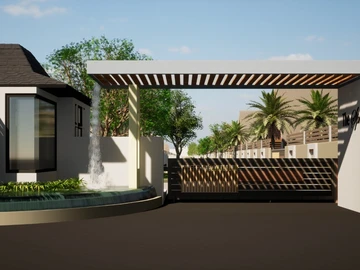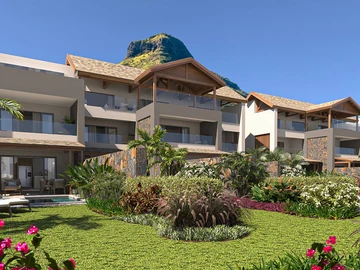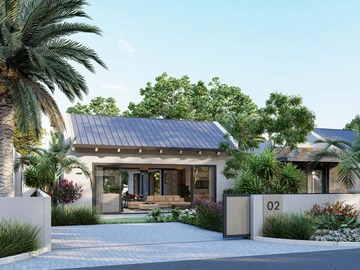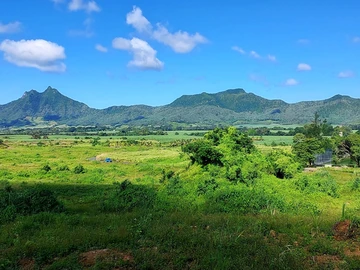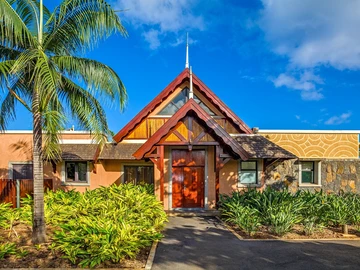2020 was an unprecedented year in which a global pandemic took over the world. As a result, Mauritius closed its borders in immediate action, later reopening with a 14-day mandatory quarantine on arrival. For a country that boasts more tourists (1.8million annually) than a population (1.2million) the impact on the real estate sector was severe.
At the start of the pandemic, the World Health Organization identified Mauritius among 13 African countries as being at high risk to the high volume of international travel, high population density and long life expectancy (due to the elderly being at great risk).
After immediate action by the Mauritian government to close international borders and enforce a hard lockdown, Mauritius was able to contain the virus’s spread, reducing its COVID-19 infections from a few hundred to zero in under 8 weeks and being noted as an international example to many other countries around the world.
Unfortunately as of today, Mauritius finds itself in its second Lockdown. A recent outburst of isolated COVID cases almost 1 year after the first confinement has Mauritius again fighting this battle. Although as per reports, the government remains very hopeful of a short, sharp lockdown based on successful contact tracing and identification processes.
So what about the aftermath of such a lockdown/s, closure of borders to an island that predominantly generates investment activities and economic stimulation from foreigners - both investors and tourists?
Based on data from PropertyCloud.mu the rental market was the hardest hit - declining 30-40% from pre-covid rental prices. Luxurious new home sales in the Property Development Schemes ground to a halt (real estate available for foreigners), while inquiries into land purchases saw a spike in the latter half of 2020 primarily driven by local demand within price ranges of MUR 800,000 to MUR 3.5 million (land available for Mauritian citizens). Providing a marked resistance was that of the resale market - for both foreigners and citizens - with no major declines taking place and holding resilience.
The Central Bank of Mauritius immediately slashed the repo rate by a total of 150 basis points on two separate occasions from 3.35% to 1.85% dated 10 March and 16 April 2020. A decrease in the repo rate is aimed at stimulating growth and stabilizing the economic situation. This allows commercial banks to bring down their lending rates to retail and real estate loan borrowers and alleviate those carrying existing debt facilities.
Commercial banks reduced their rate in the following months at varying levels with home loan rates ranging from 2.99% to 5.4%. Below is a guide of indicative home loan rates from selected financial institutions: ABSA Bank - 3.35%, BCP Bank - 3.0%, MAU Bank - 3.4%, AfrAsia - 3.25%, MCB - 3.4%, SBI - 2.99%. From a fiduciary perspective the active changes in lending rates and availability of credit facilities was a strong boost to the fragile company, however as we moved into the second part of 2020 banks started to tighten their lending criteria and this has extended into 2021, mainly being felt through increased difficulties in loan applications within the local market for land purchases.
Estate agencies that previously enjoyed a regular flow of international inquiries and high volumes of transactions were the hardest hit. The ensuing hard lockdown heavily impacted any movement on the island and hindered thoughts of real estate purchases during uncertain times. Agencies that pivoted from high-end luxury units to satisfying local demand for land and adequate housing for residents were those who recovered the quickest. During the latter part of 2020, there was a gradual migration of trends whereby local demand was able to provide a return to business for many of the agencies, although a return to a new more-subdued normal.
The new homes sector has over 110 registered PDS, RES or IRS schemes comprising more than 5,500 registered residential units on the island according to the registry of EDB Mauritius (excluding smart cities). This sector has become already over-saturated by current market standards, with pre-covid levels of demand resulting in approximately 200 units sold on an annualized basis.
For real estate investors, the hardest-hit area was that of the buy-to-let market. A key market of Mauritius is the short-term / holiday-let vacation homes which command premium prices, and equivalent premium returns. With borders shut and no tourists, these investors have been left out of pocket and have turned their focus to long-term rents now attracting a smaller than usual market for foreign residents. Although resilient as the market stands, there has been no material change as to the value of the current real estate and/or no downturn in pricing to the secondary sale market - apart from the to-be-expected slowdown.
For Mauritius as an investment, the destination is known for high-end real estate, purchased as buy-to-let, and/or short-term Airbnb vacation rentals; the pandemic has had a visible effect on this market segment. Vacancies are up, rental prices are down, and demand will likely not return for a while. Until that time, the market is expected to be inducted into a sustained cooling-off period, which to much of the population is a welcome reprieve. Although a sharp rebound could be expected post-pandemic to exceed even pre-covid demand levels for demand as more tourists look to visit our shores again in a safer, more distant future.
Log in to contact the seller
 Continue with Facebook
Continue with Facebook
 Continue with Email
Continue with Email






